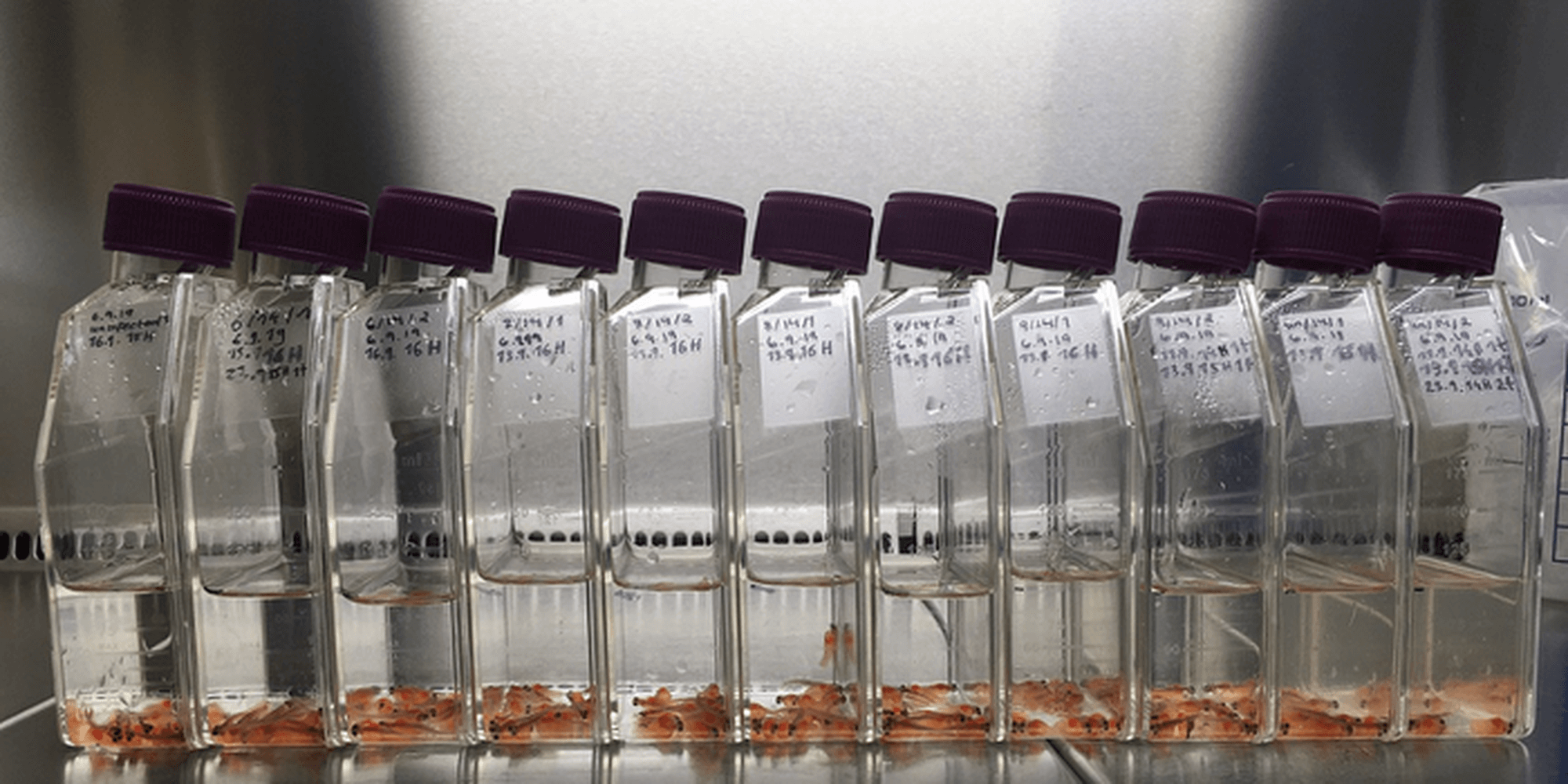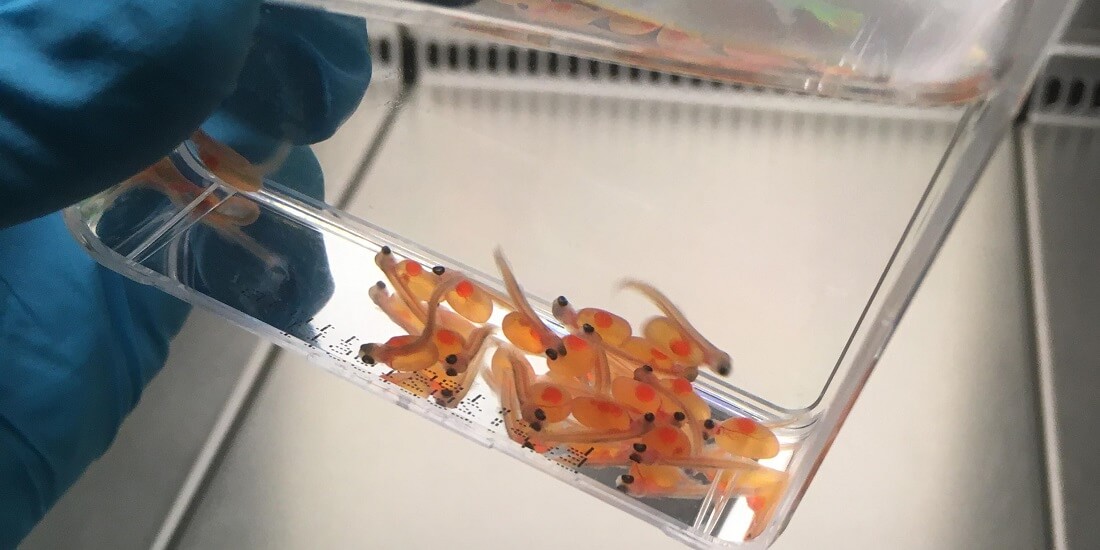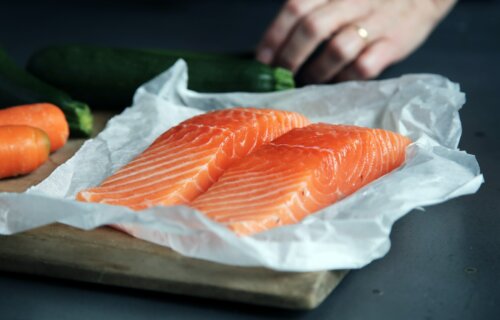TRONHEIM, Norway — Could bacteria-free fish fry lead to healthier farmed fish and a better food supply? That’s the question researchers at the Norwegian University of Science and Technology (NTNU) set out to answer by keeping salmon fry bacteria-free for up to 12 weeks after hatching. This has helped researchers understand how bacteria and fish affect each other.
Salmon fry are normally bacteria-free in the egg phase but are colonized by bacteria as soon as they hatch. The bred fry has no natural bacterial community. This makes them a blank slate for researchers to add the bacteria they want and see exactly what happens.
In the first published article, they found that bacteria affect the protective skin mucus layer in the fish, with the salmon that did not receive bacteria developing a thinner mucus layer on the outside of their bodies than fry exposed to researchers’ specially selected bacteria or bacteria from a lake. The bacteria also affects the fat reserves of the fish, with the fry that received bacteria from a lake developing greater fat reserves.
“Bacteria-free model systems are generally important for understanding interactions between the bacteria and host,” says study NTNU professor Ingrid Bakke, in a university release. “An example would be understanding how gut microbiota affect development and health in humans and other mammals.”

Salmon fry have some characteristics that make them particularly suitable for research. They have large and well-developed fry, which makes them easier to study. The fry phase is long enough for the researchers to carry out several types of experiments. Since the fry obtain their nutrition from the yolk sac, the researchers don’t need to add fish feed that could contain microorganisms that disturb the research results.
The goal of the researchers is to understand which mechanisms affect the composition of the bacterial communities that colonize the fish immediately after hatching. They’re looking at how the bacterial communities possibly protect against bacterial infections, and whether it’s possible to influence the early bacterial colonization of fry. Enabling such probiotic treatment would mean that researchers could add live microorganisms to the fish to achieve beneficial effects, such as better health and growth. However, probiotic treatment on a large scale is still a long way off.

The Norwegian product Stembiont is already available, which is a probiotic product intended for larger fish. More research is needed for probiotic use on a larger scale. The research is being financed by the Research Council of Norway through FRIPRO funding. The research could lead to a better understanding of how bacteria affect fish and humans, which could result in healthier fish and humans in the future.
The study is published in the journal Frontiers in Cellular and Infection Microbiology.
You might also be interested in:
- Best Ways To Cook Salmon: Top 5 Methods, According To Culinary Experts
- Lysol for your food: This spray could keep your meals free of deadly bacteria
- When should you eat fish? Scientists uncover the perfect season to avoid mercury contamination

